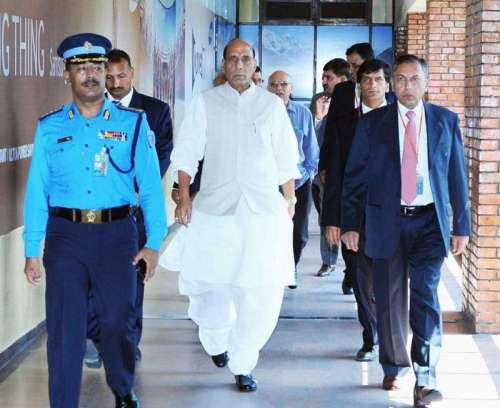SAARC agrees to combat terrorism of all means and kinds….reports Anil Giri

SAARC member states agreed to fight terrorism jointly in the region in all its forms and manifestations. They also agreed to a collective response to fighting transnational organised crimes, drug abuse, cyber crimes, corruption, maritime security, piracy, trafficking in women and children, and operationalising the SAARC Terrorism Offences Monitoring Desk 9 in Colombo, Sri Lanka, as well as matters related to the SAARC Visa Exemption Scheme.
The agreements came after the Sixth Meeting of SAARC Ministers of Interior and Home. The meeting was preceded by the meetings of SAARC immigration authorities Wednesday and SAARC secretaries of interior and home Thursday.
The meeting also committed to curb the menace of corruption which has become like a famine in the region, said a statement issued by Nepal’s home ministry after the meeting.
Similarly, the meeting also stressed the early conclusion of signing the SAARC Agreement on Mutual Legal Assistance (MLA) to tame the growing problem of drug abuse and trafficking of women and children.
The meeting also endorsed the Indian proposal on setting up a SAARC Centre for Good Governance.
In his speech Friday, Indian Home Minister Rajnath Singh had proposed setting up a SAARC Centre for Good Governance in India.
“In fact, we can share our experiences at the administrative level,” he said while addressing the meeting Friday morning.
“Here I would like to suggest to establish a SAARC Centre for Good governance where the administrative officers from all member countries could come together to exchange their experiences pertaining to development and good governance.
“It will not only strengthen the positive trends of development in South Asia but also help in realizing our shared dream of good governance,” the Indian minister said.
“Indeed, this is very fine idea and we can share the experience of governance and work for curbing corruption,” said Nepal’s Minister for Home Affairs Bamdev Gautam.
India will later forward a proposal in detail in this respect.
In his inaugural address, Nepal’s Prime Minister Sushil Koirala said terrorism, extremism, and radicalism posed threats to the culture of harmony and tolerance existing in the South Asia region, and called for a collective journey towards peace, stability and prosperity, stressing the need for the SAARC member countries to make collective resolve to addressing the challenges emanating in them.
Gautam, who is also Nepal’s deputy prime minister, said Nepal was willing to expand cooperation with all the SAARC member states on matters of common interest related to establishing peace and security in the region.
SAARC Secretary-General Arjun Bahadur Thapa said the meeting of the SAARC ministers of interior and home would be significant in ensuring peace, stability and development and achieving the long-term goals of the regional body.
He believed the meeting would contribute to the policies that would be charted out for the future for strengthening regional peace and security.
One hundred senior officials, including the ministers of interior and home except from Pakistan, Nepal’s foreign ministry and the SAARC Secretariat, deliberated on regional peace and security issues in the meeting.